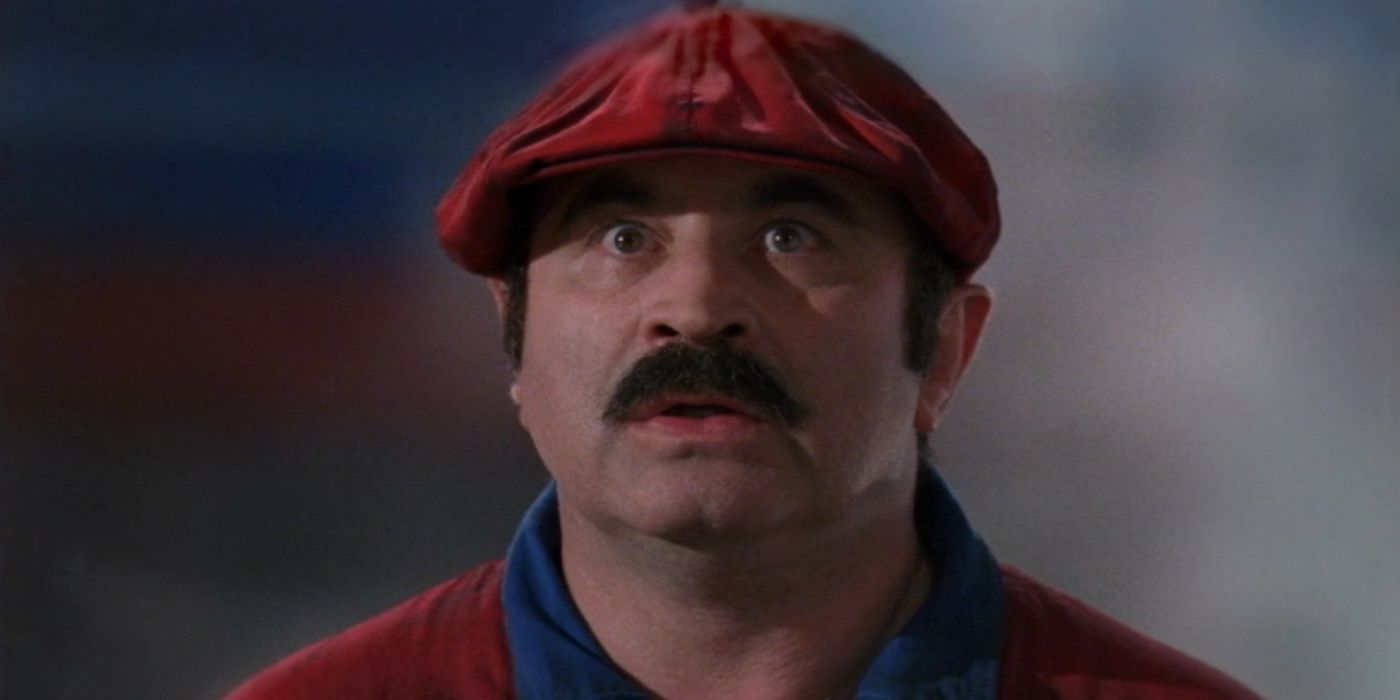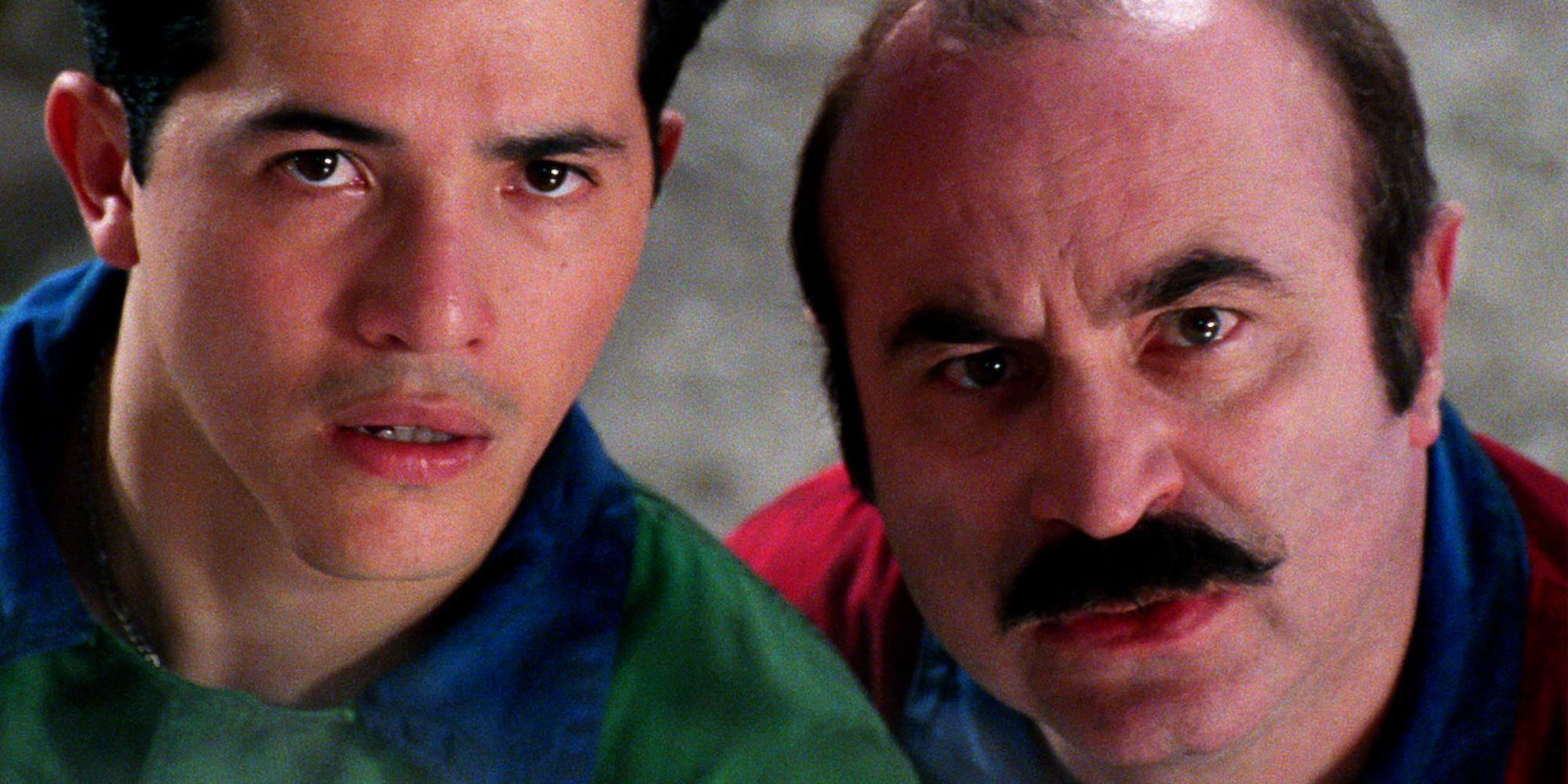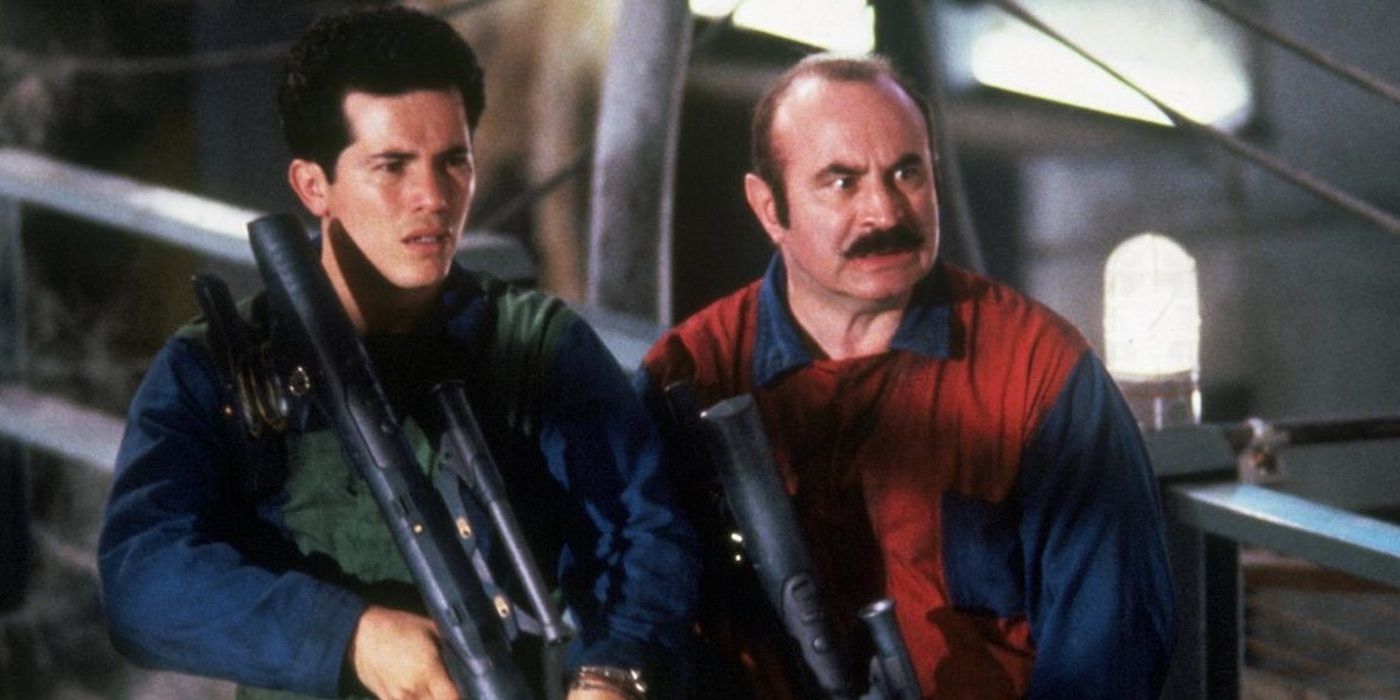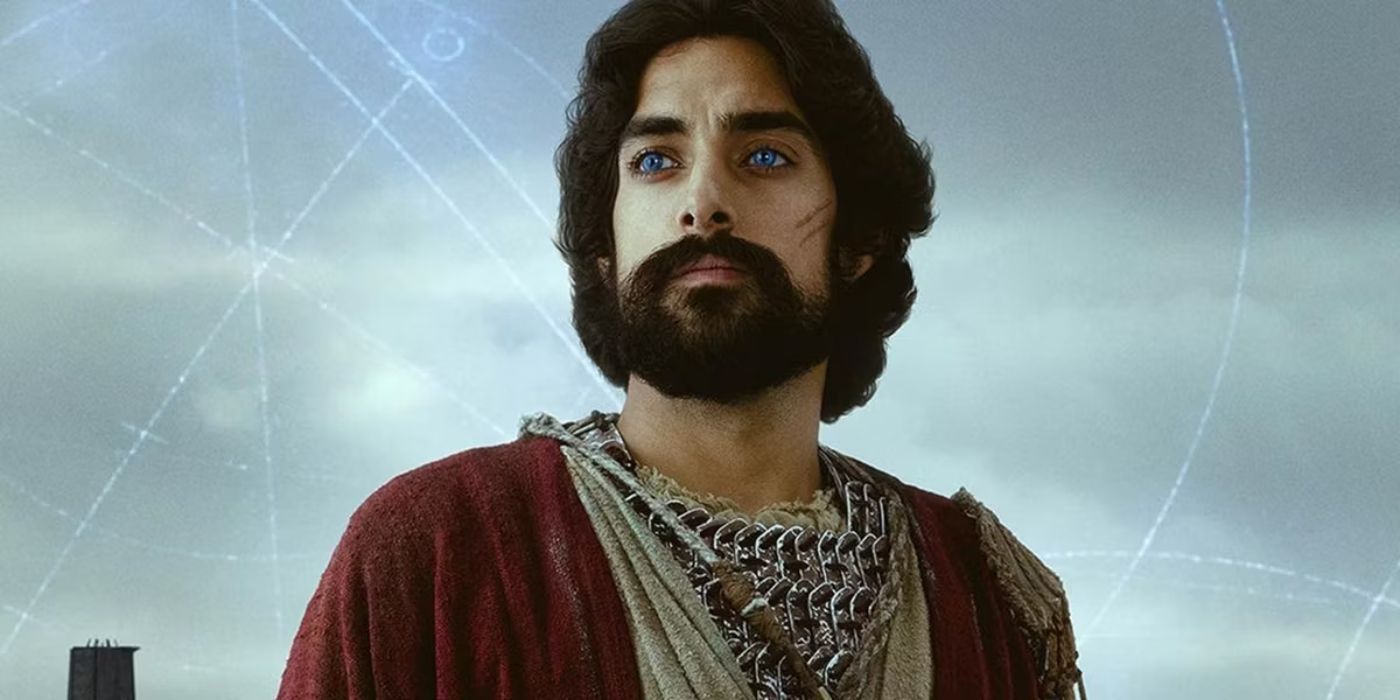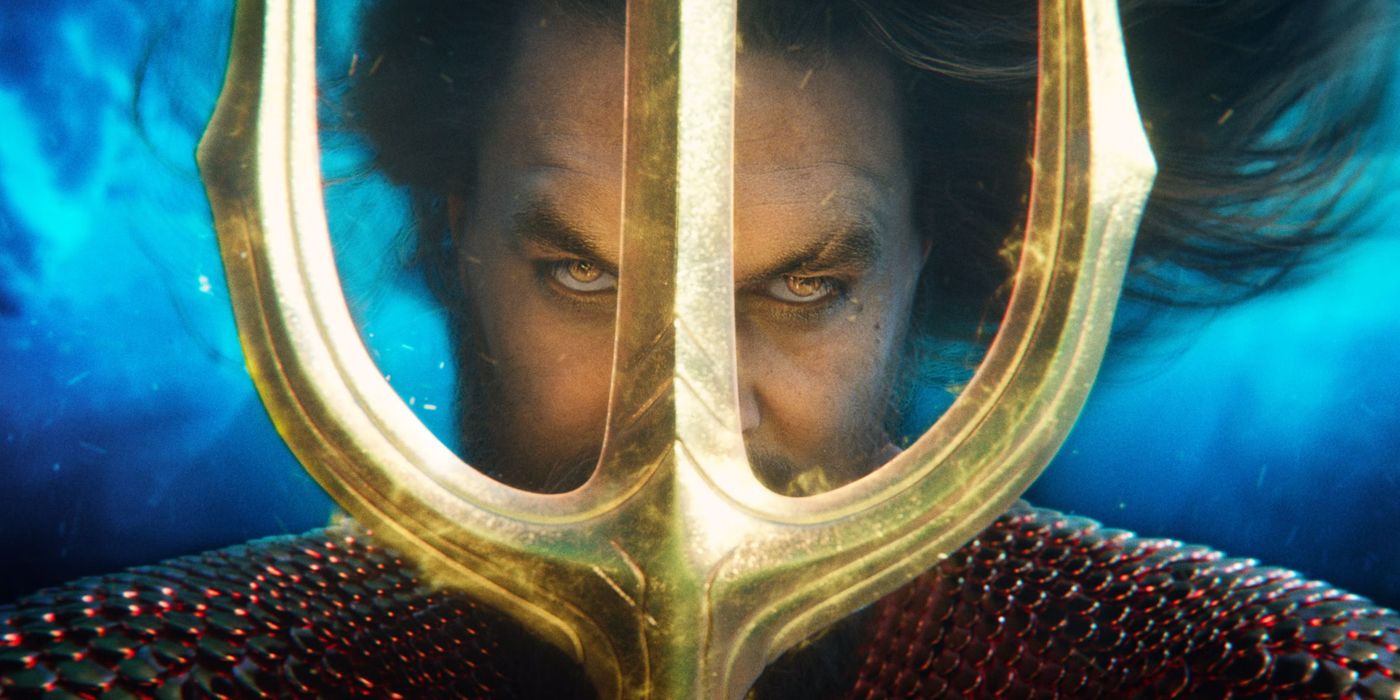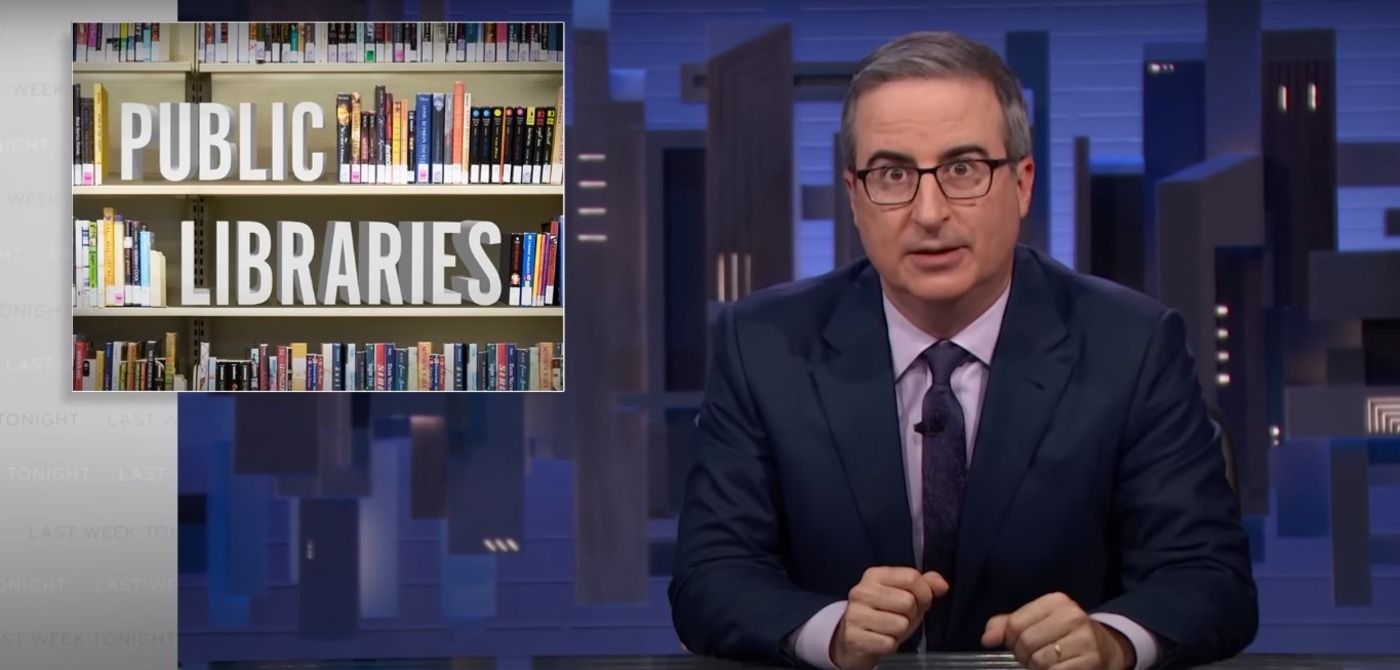The Big Picture
-
Super Mario Bros.
is a weird, beautiful, madcap, inspiring, and utterly bonkers film. - The film attempted to balance darkness with family-friendly content, resulting in an interesting and somewhat divisive final product.
- The characters in the film are depicted as heroes for the people, fighting against oppression and political fascism.
In 1986’s Super Mario Bros.: The Lost Levels, a poison mushroom is among the items available for Mario and Luigi to grab on their quest through the Mushroom Kingdom to save Princess Peach. Unlike every other item seen in the then-nascent franchise, this item was designed to hurt the user; it looked, on first glance, like a regular power-up mushroom, but if you grab it, you’ll either shrink or die. It was a stunning piece of darkness, even betrayal, to introduce into the friendly, smiley world established in the Mario video game franchise thus far.
1993’s feature film adaptation of this world, the simply titled Super Mario Bros., seemed to take its creative cues from this poison mushroom philosophy. At first glance, you have Mario (Bob Hoskins), Luigi (John Leguizamo), Princess Daisy (Samantha Mathis), King Koopa (Dennis Hopper), and the Mushroom Kingdom. But it’s all distorted, purposefully corrupted, designed to reel you in before “poisoning” you with a kneecapping dissection of dystopian police state politics, the benefits and drawbacks of a devolved, primal society, and the horrors that come from deified dictators subjugating people. Let’s-a… go?
Super Mario Bros.
Two Brooklyn plumbers, Mario and Luigi, must travel to another dimension to rescue a princess from the evil dictator King Koopa and stop him from taking over the world.
- Release Date
- May 28, 1993
- Director
- Annabel Jankel , Rocky Morton
- Runtime
- 104 minutes
“The Worst Thing I Ever Did”
Nobody wanted this poison mushroom of a film; not the participants, not the critics, not the fans, not Nintendo. Hoskins said this, quite bluntly, of the experience: “The worst thing I ever did? Super Mario Bros. It was a fuckin’ nightmare. The whole experience was a nightmare. It had a husband-and-wife team directing, whose arrogance had been mistaken for talent. After so many weeks their own agent told them to get off the set! Fuckin’ nightmare. Fuckin’ idiots.” That husband-and-wife team, Annabel Jankel and Rocky Morton, co-creators of the digitally glitching cyberpunk character Max Headroom (a decent glimpse into the kind of muckraking aesthetics and thematic goals they’d bring to any property you hire them on), also expressed a sense of “humiliation” in working on the film (that’s Morton’s exact word choice in this interview). It didn’t recoup its budget. Mario creator Shigeru Miyamoto opined, somewhat diplomatically, that “it became a movie that was about a videogame, rather than being an entertaining movie in and of itself.” The Super Mario Bros. Movie from Universal and Illumination is certainly a more accurate course correction from what we saw in the early ‘90s.
And yet, from the first time I watched it to the most recent, I cannot get enough of this weird, beautiful, madcap, inspiring, utterly bonkers motion picture. It’s a bold piece of commercial filmmaking, a testament to the captivating strengths and idiosyncratic flaws that happen when you give filmmakers free rein with a known IP, a refreshingly political jolt to the system (especially when compared to its designedly apolitical source material). Watching it now reminds you just how much power there is in tactility; every set, usage of practical effect, and speck of film grain sings with authenticity and earned grit. It feels like a mish-mosh of other acclaimed action, sci-fi, and superhero blockbusters at the time; the gonzo production design of Tim Burton’s Batman with the provocative politics of Paul Verhoeven’s RoboCop with the tempo and sentimentality of Steven Spielberg’s Hook. If Mario was a superhero instead of a video game character, we would remember this film much more fondly as a bold adaptation, a precursor to the Christopher Nolans and, yes, Zack Snyders of the world who filter our pop myths through a sense of committed groundedness and uncompromising aesthetic points of view (especially in the film’s mafia/crime film-borrowing subplot).
‘Super Mario Bros.’ Balances Darkness and Being Family-Friendly
Speaking of Mr. Snyder, I’m on record as singing the praises of silliness in superhero cinema and denigrating edgy descents into grimdark territory. Why does Super Mario Bros. get a pass, especially given how much I love the unabashed joy of the source material? I think it’s because of the obvious, pervasive sense of wholesomeness, love, and even respect at the core of the film — and, it’s worth noting, sometimes airlifted in from what feels like another film in an attempt to soften the hardest edges of Jankel and Morton’s vision. The film, in large part thanks to production designer David L. Snyder (also responsible for the similar cyberpunk nightmares of Blade Runner), is simply stuffed with artifacts of an over-industrialized neo-fascist world gone to shit. Prison cells jammed on top of each other, police stations rife with chaos, distorted television screens everywhere, hazy skyscapes, giant political propaganda imploring the oppressed citizens to keep supporting their oppressor, an out-and-out Mad Max car chase resulting in giant explosions… all of this feels pretty weird underscored with Alan Silvestri’s zippy, zany, repetitive, cornball music. It can’t help but feel like a last-ditch attempt to make the film “feel” family-friendly, resulting in a final product that feels oddly bifurcated, and yet, relentlessly interesting (more traditionally successful in these “make it family friendly” additions? Fisher Stevens and Richard Edson as Iggy and Spike, Mario characters turned into stupid-cum-smart henchmen, whose slapstick takes on a Rosencrantz and Guildenstern relationship never cease to entertain).
But the film’s sense of “niceness” isn’t just a half-baked afterthought painted on out of fear. From the very beginning, in the lovingly lensed New York sequences (DP Dean Semler, of Mad Max 2 and 3 fame, bringing out the vitality in everything he shoots), the Marios’ relationships with each other, with their loves, and with the world at large is refreshingly positive. The plumber brothers grew up raising themselves, with Luigi telling Daisy that Mario “brought me up. He’s been my father, my brother, my uncle, everybody,” followed by a beautiful moment of bashful silence where everyone gets a moment to take this sentimental thought with a smile. Daisy is arguably given more agency and personality here than in any video game depiction of Princess Peach; she is a lover and researcher of paleontology, a savior from an alternate dimension, a woman unafraid to stand up to those who dare try to get in her way, a carer of her fellow creature, whether human or dinosaur (her interactions with Yoshi, painted here as being cruelly kept by Koopa, are heartbreaking). She is, by her own admission, weird, and moreso, Luigi loves that; it’s a delight to see him encourage her habits in the beginning and help her save the day in the end (Mario has a similarly wholesome relationship with a take on the Pauline character, played with charm and fire by Dana Kaminski).
Mario and Luigi Are Heroes of the People
All three of these characters express, casually and subtly, political and personal beliefs that frame them squarely as “heroes for the people.” I love how often the film reminds us that Mario and Luigi are just every day, underdog plumbers trying their best to help make a crazy world a little saner (what’s more of a working class hero, an example of systemic change coming from small actions, than a plumber?), and I love Mario calling out the Mushroom Kingdom’s oppressive police state (“You can’t arrest a guy for singing a song!” pleads Mario after witnessing a cop nab a guy who’s singing a protest song about Koopa; one of the wildest, most effective scenes of any IP-based film I’ll ever see).
These moments, fundamental to the film’s admittedly wild DNA, serve as an exemplary difference between style and substance. Super Mario Bros. uses, fascinatingly and frantically, the visual language of darkness, dystopia, and “edge” to present immersively a world in desperate need of saving. And while its hero characters fit into this world’s mise-en-scène like a glove (especially when they don a version of their video game costumes), they do not share its darkness. They believe in making the world a better place, in helping each other, in love. They are the fighters of unchecked power, of oppression, of out-and-out political fascism. They are not coated fetishistically in a “grimdark” coat of paint; rather, they’re trying to stop it. It continues to be an underrated, even prescient pleasure to watch this take on Super Mario Bros., to orient oneself to these relatable heroes, to gape in amazement at the tactile world, and to laugh in audacity at the giant authorial swings taken.
I can’t believe I’m saying this, but: #ReleaseTheJankelAndMortonCut.
Super Mario Bros. is available to buy on 4K
Buy Here

